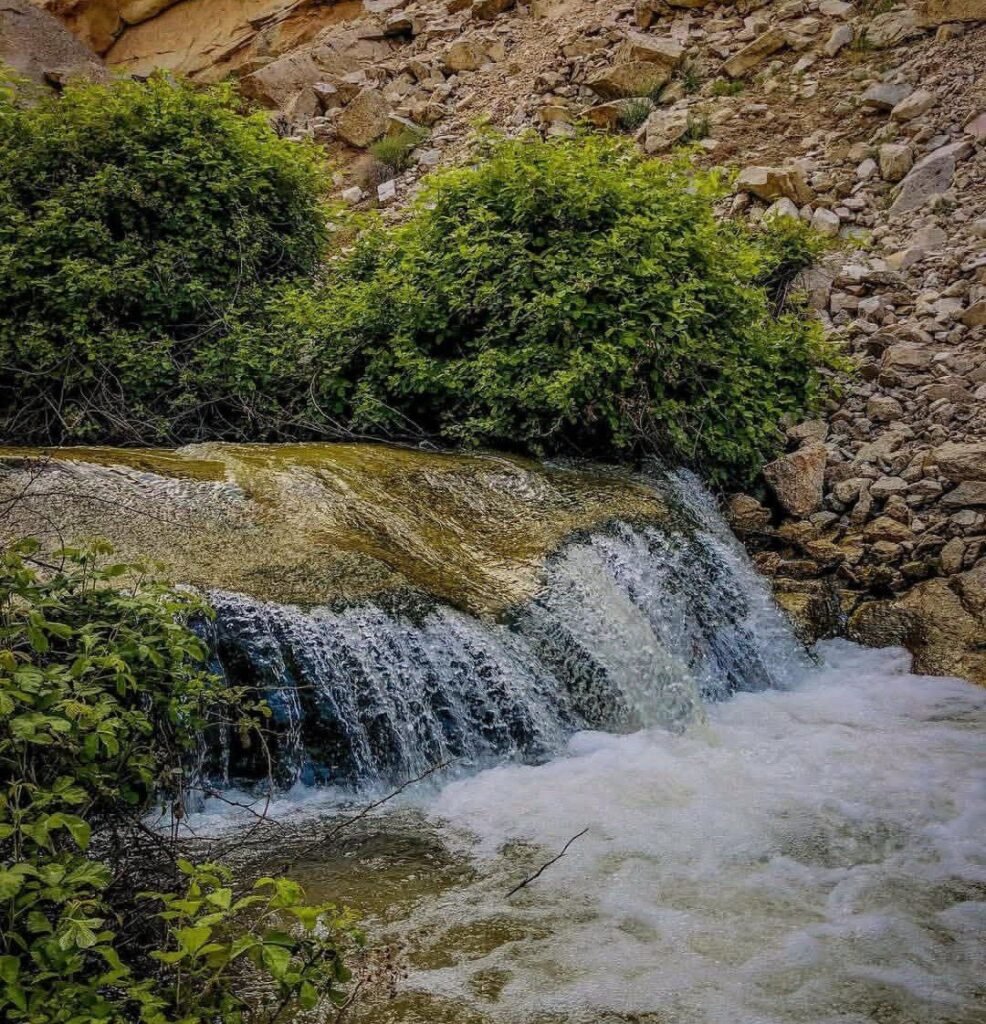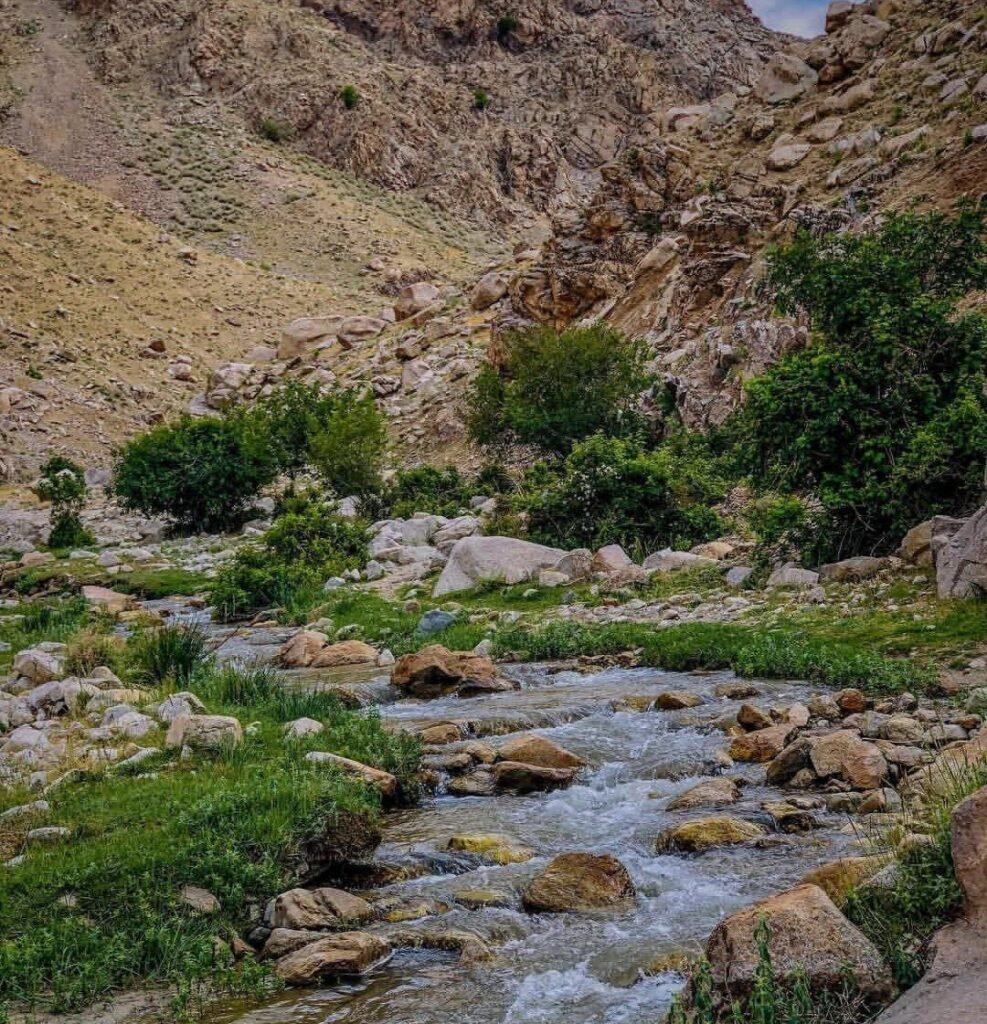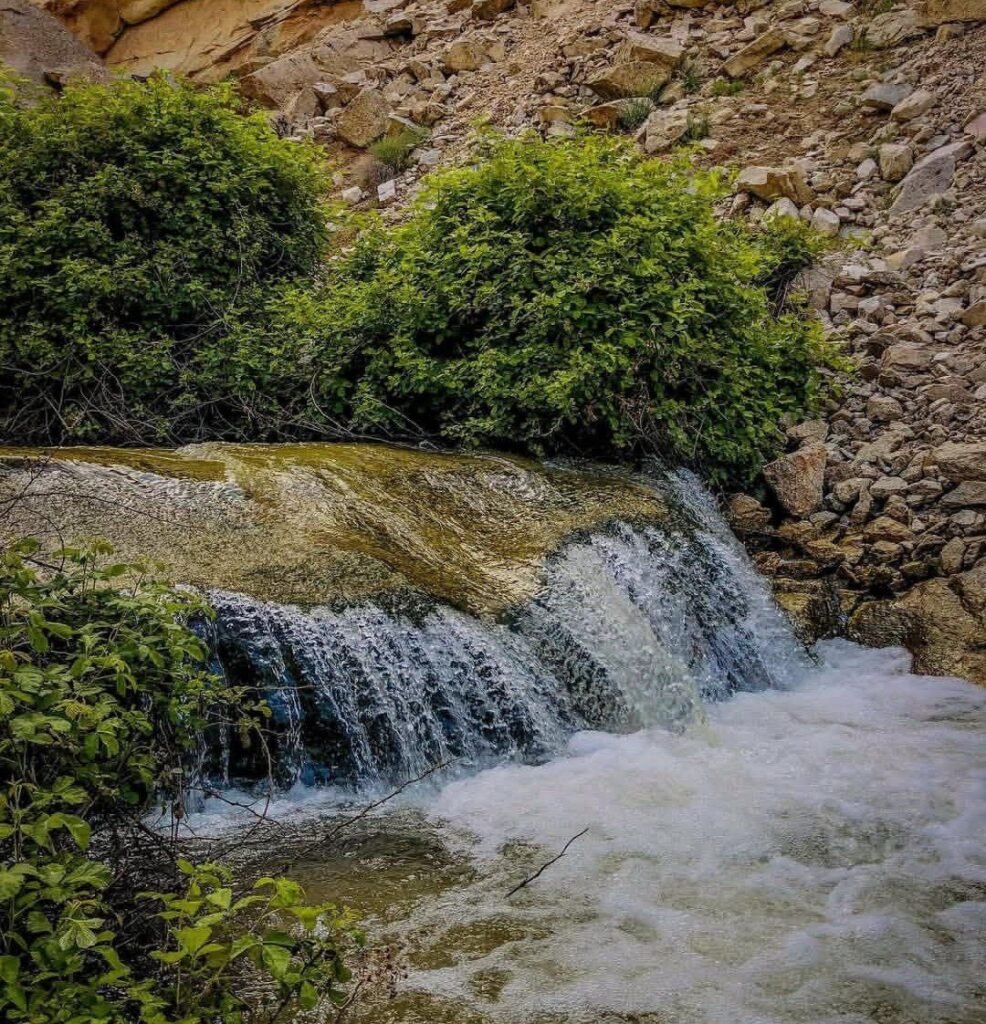Geographical Location
Obeh District is one of the oldest regions of Herat Province, located 69 kilometers east of the provincial capital. Covering an area of 2,240 square kilometers, the district center lies at an elevation of 1,275 meters above sea level.
Boundaries:
- North: Qadis District, Badghis Province
- South and East: Farsi District
- Southwest: Adraskan District
- West: Kushk and Pashtun Zarghun Districts
Historical Background and Etymology
According to historical accounts, Obeh is among the first settlements established after Fushanj (Pushang) and before the present-day city of Herat. One narrative tells of a group of peasants from the Dioband region who fled oppression and settled in Obeh, where they built a scenic and flourishing town.
Another legend attributes the district’s development to the era of Alexander the Great (circa 330 BCE), during which Obeh was restored due to its fertile land and pleasant climate. When Alexander inquired about the land from one of his courtiers, the man responded, “This is better than that,” or in Persian, “او به است” (Ou beh ast). The phrase eventually became the district’s name: Obeh.
Population, Language, and Religion
Demographics and Social Structure
Obeh has an approximate population of 150,000 people, residing in over 250 official and unofficial villages. The society is predominantly rural and traditional, with many families living in extended, multigenerational households.
Social relations are deeply rooted in kinship, respect for elders, and community cooperation in agricultural work, construction, and religious ceremonies. The people of Obeh are known for their hospitality, humility, and strong adherence to cultural customs.
Language
The primary language in Obeh is Dari Persian, spoken with a distinct, melodious local accent rich in classical Persian vocabulary. This dialect gives the speech a poetic and rhythmic quality, preserving many ancient Persian terms no longer common elsewhere.
In some areas, particularly near the Badghis border or due to interethnic marriages, a minority also speaks Pashto.
Religion
The vast majority of Obeh residents follow the Hanafi Sunni school of Islam. Religious life is central to daily activities, with mosques and shrines playing a key role in community life and moral education.
Historically, the district was also home to religious minorities:
- Shi’a Muslims: A number of Shi’a families once lived here but gradually migrated to Herat city.
- Jews: Until the 1980s, some Jewish families lived in Obeh, mainly involved in trade.
- Sikhs: Known as “Hakim Ji” (Greek-style physicians), some Sikh families served as traditional healers.
- Kazakhs: Present in Obeh until the 1990s before moving to Herat or emigrating to Kazakhstan.
Cultural and Linguistic Diversity
Despite being largely Persian-speaking and Sunni Muslim, Obeh’s cultural landscape is shaped by historical coexistence with various ethnic and religious groups, fostering a tradition of tolerance and cultural richness.
Climate
Obeh experiences diverse seasonal weather:
- Spring: Pleasant and mild
- Summer: Moderate
- Autumn: Semi-cold
- Winter: Cold with snow, rain, and frost
Natural Features and Agriculture
Obeh is divided into northern and southern parts by two rivers: the Kigan River and the Harirod River. Most agricultural lands are irrigated by the Harirod, contributing to Obeh’s status as one of the greenest districts in Herat.
Land Statistics:
- Irrigated land: 86,000 jerebs
- Rainfed land (Lalmi): 87,000 jerebs
- Orchards (grapes & other fruits): 8,400 jerebs
Main Crops and Livelihoods
Approximately 85% of the population are engaged in farming and animal husbandry, while 15% are involved in local trades and small businesses.
Primary agricultural products include:
- Grains: Wheat, rice, barley
- Legumes: Mung beans, kidney beans, chickpeas, turnips
- Fruits: Grapes, apples, melons, watermelons, barberries
- Vegetables: Eggplants, tomatoes, onions, potatoes
- Others: Saffron and mixed dried fruits (Chahar Maghz)


